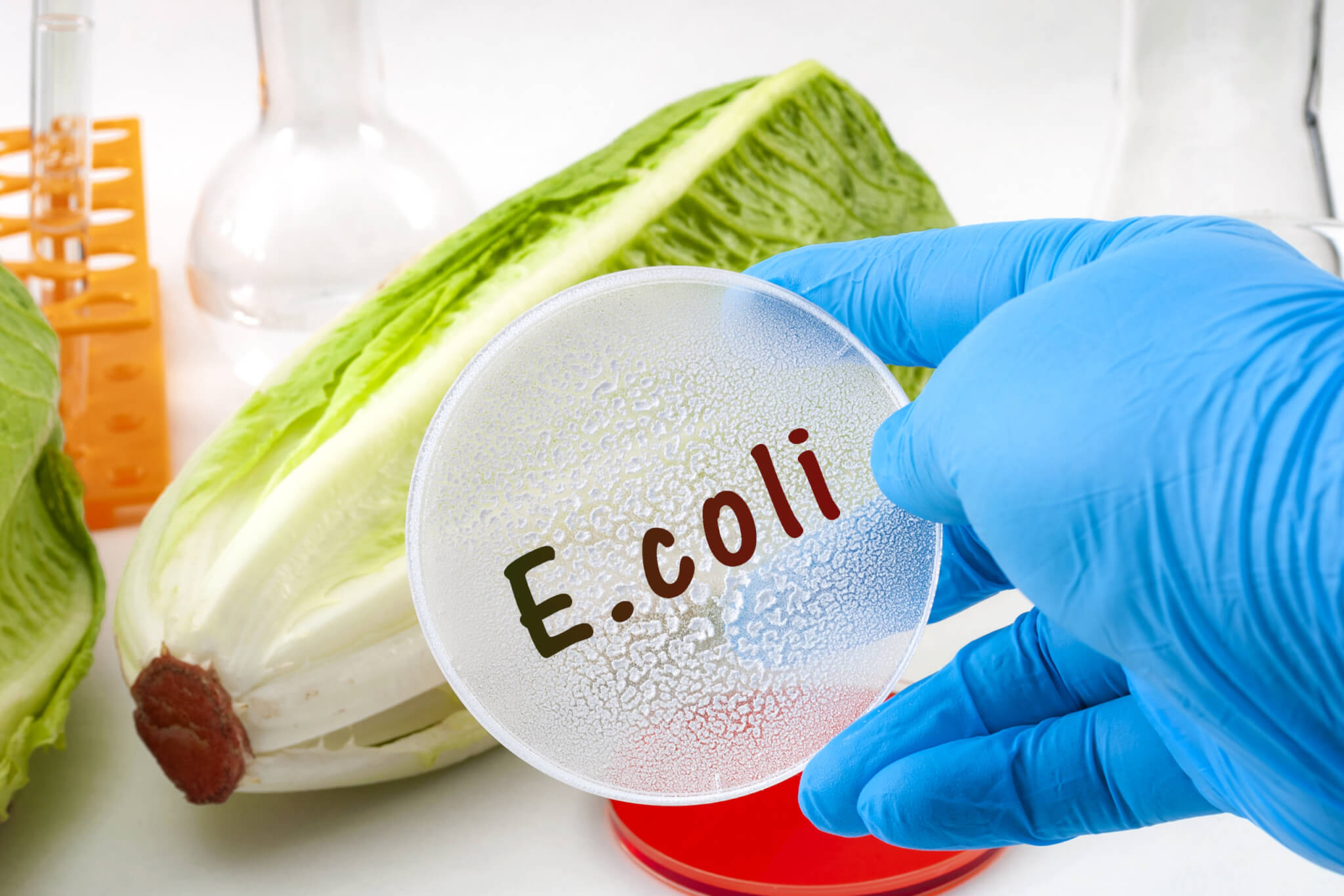ITHACA, N.Y. — Tryptophan is probably most famous for being the amino acid in turkey that makes people so sleepy after a big meal. Now, researchers from Cornell University report that adding tryptophan to your diet can help protect against E. coli infections. Scientists report that both gut bacteria and a diet rich in tryptophan can help hinder the spread of E. coli, known to induce severe stomach pain, cramps, fever, intestinal bleeding, and renal failure.
The study details how dietary tryptophan, an amino acid also found in nuts, seeds, whole grains, and legumes, breaks down in gut bacteria into small molecules called metabolites. Some of those metabolites are capable of binding to a receptor on gut epithelial (surface) cells, consequently triggering a pathway that works to reduce the production of proteins that E. coli uses to attach itself to the gut lining, ultimately causing an infection. If E. coli fails to infect and colonize the gut, the pathogen simply moves through and passes out of the body in a benign manner.
Additionally, researchers describe a previously unknown role in the gut for a specific receptor called DRD2. That receptor is usually considered a dopamine receptor (a neurotransmitter) in the central and peripheral nervous systems.
“It’s actually two completely different areas that this receptor could play a role in, which was not appreciated prior to our findings,” says Pamela Chang, associate professor of immunology in the College of Veterinary Medicine and of chemical biology in the College of Arts and Sciences, in a media release. “We essentially think that DRD2 is moonlighting in the gut as a microbial metabolite sensor, and then its downstream effect is to help protect against infection.”

Now, that this specific pathway has been identified as a potential means of stopping E. coli infection, scientists can begin studying the DRD2 receptor and components of its downstream pathway for therapeutic targets.
During this project, study authors used a group of mice infected with Citrobacter rodentium, a bacterium that closely resembles E. coli. Researchers avoided actual E. coli because some strains do not infect mice. Through a series of experiments, researchers confirmed the presence of fewer pathogens and inflammation (a sign of an active immune system and infection) after mice received a tryptophan-supplemented diet.
Next, in an effort to illustrate that gut bacteria also played a role, they provided the mice with antibiotics to deplete microbes in the gut. This led to finding that rodents showed a C. rodentium infection in spite of eating a tryptophan diet, effectively confirming that protection from tryptophan is dependent on the presence of healthy gut bacteria.
Next, thanks to the use of mass spectrometry, the research team put together a screen to find the chemical identities of tryptophan metabolites in a gut sample, identifying three relevant metabolites that significantly increased when given a tryptophan diet. So, once again, researchers stress that based on observed pathogen levels and inflammation, when mice received these three metabolites alone, they appeared to offer the same protective effect as giving the mice a full tryptophan diet.
Study authors also used bioinformatics to determine which proteins (and receptors) possibly bind to the tryptophan metabolites. Then, using a long list they identified three related receptors within the same family of dopamine receptors. A human intestinal cell line in their lab facilitated the isolation of receptor DRD2 as the one producing the protective effect against infection in the presence of tryptophan metabolites.
After finding the metabolites and the receptor, researchers analyzed the downstream pathway of DRD2 in human gut epithelial cells. They determined that when the DRD2 pathway undergoes activation, it results in the host’s ability to produce an actin regulatory protein being compromised.
C. rodentium (and E. coli) needs actin to attach themselves to gut epithelial cells, which is where they colonize and inject virulence factors and toxins into the cells, causing symptoms. However, without actin polymerization they are unable to attach themselves.
The experiments conducted for this study showcase a new role for the dopamine gut receptor DRD2, which is in charge of controlling actin proteins and also influences a previously unknown pathway for hindering the capacity of certain types of pathogenic bacteria to colonize the gut.
The study is published in the journal Nature.
